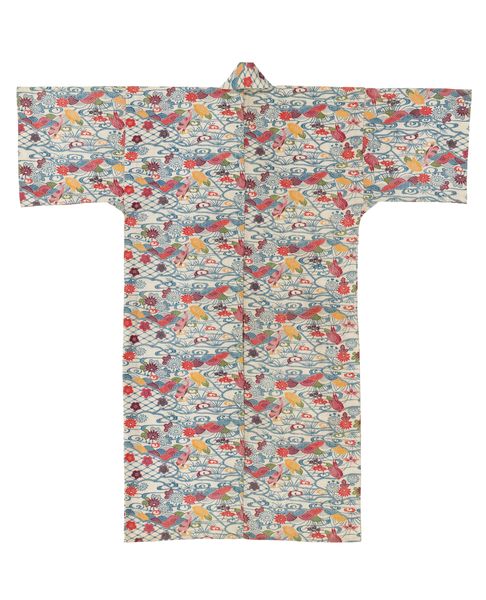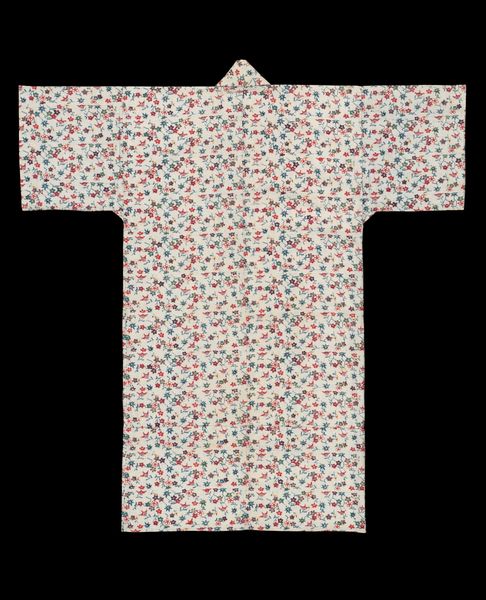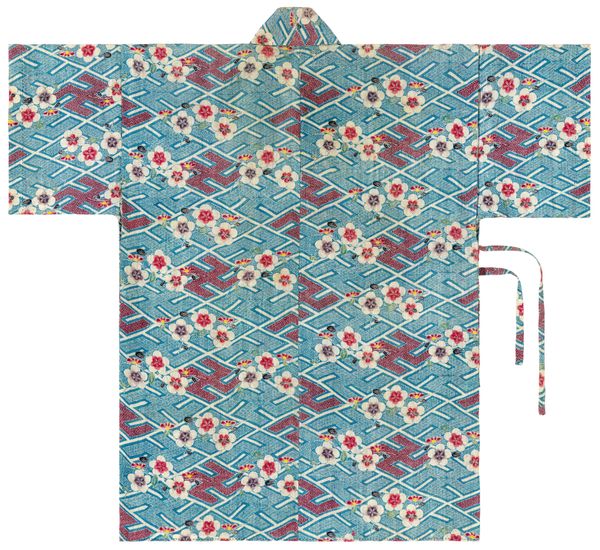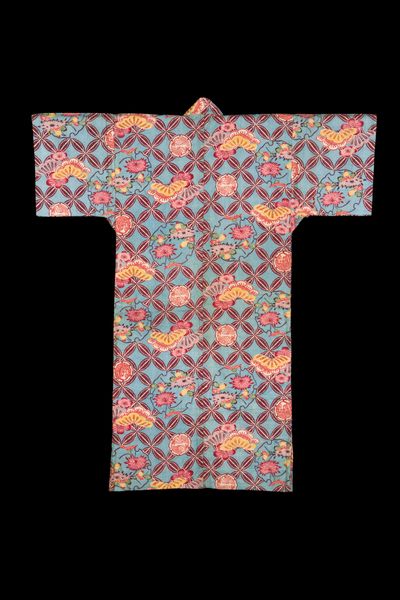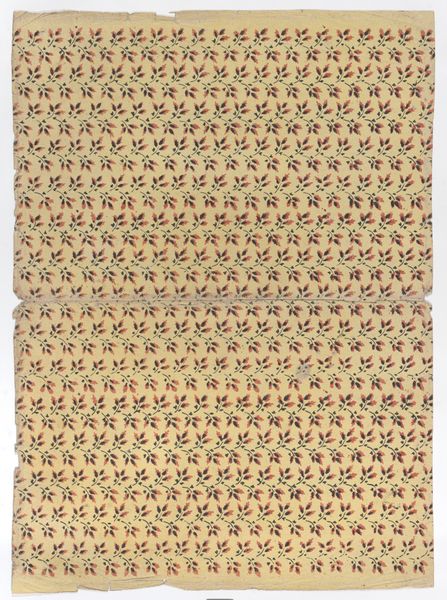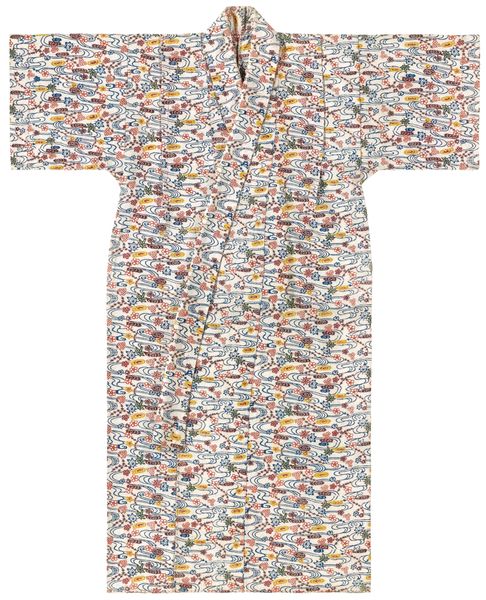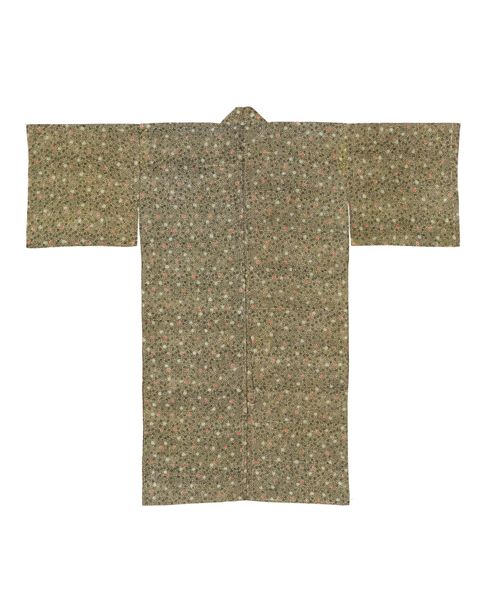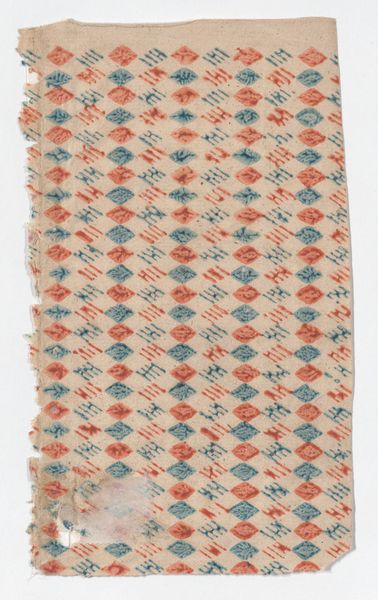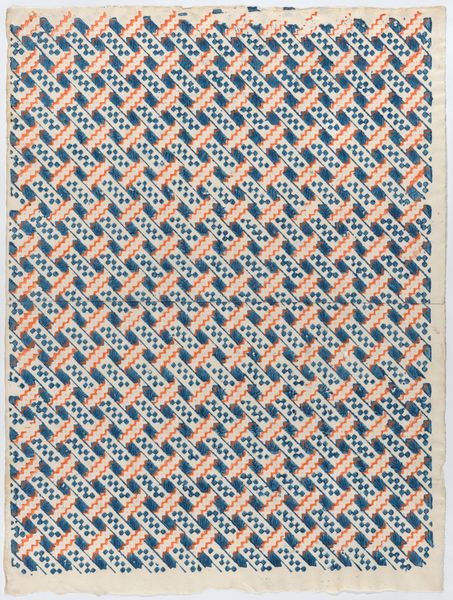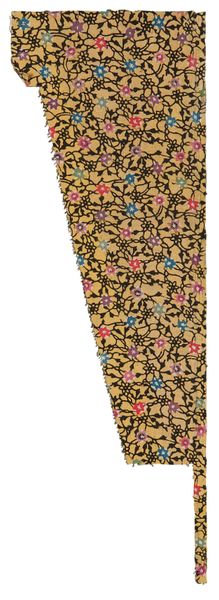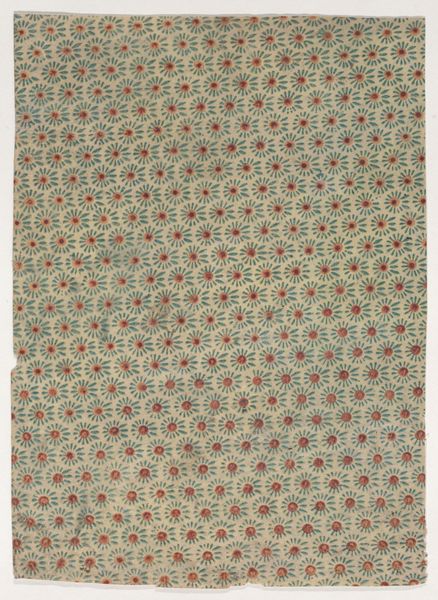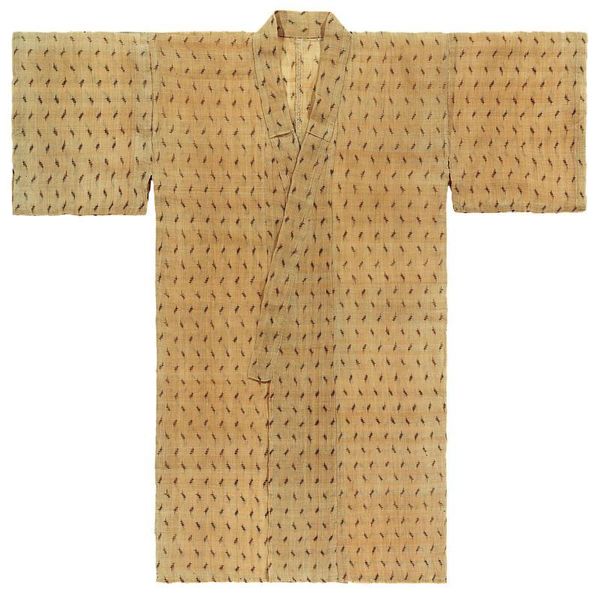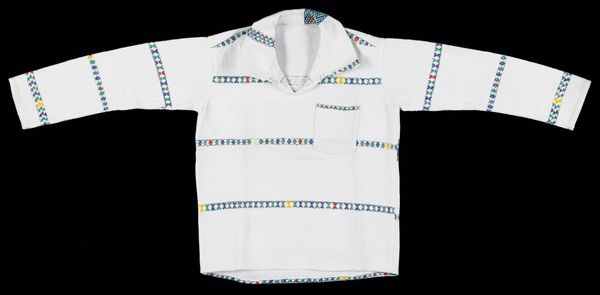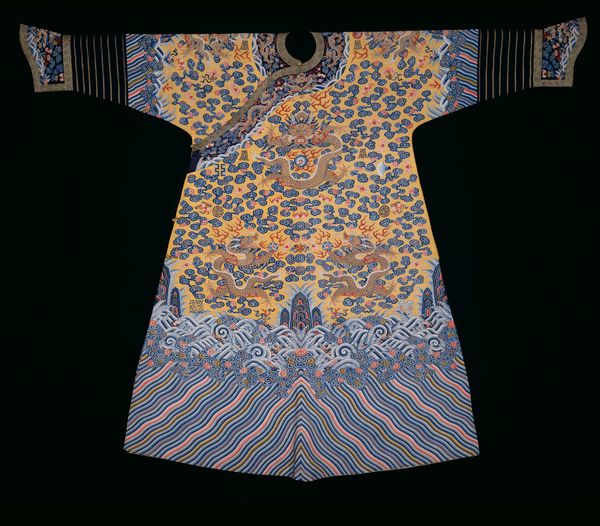
Unfinished white-ground Ryūkyūan robe (ryūso) c. 19th century
0:00
0:00
weaving, textile
#
asian-art
#
weaving
#
textile
#
japan
#
pattern design
#
repetitive shape and pattern
#
repetition of pattern
#
vertical pattern
#
regular pattern
#
pattern repetition
#
textile design
#
imprinted textile
#
layered pattern
#
combined pattern
Dimensions: 49 × 49 in. (124.46 × 124.46 cm) (overall)
Copyright: Public Domain
This unfinished robe, a ryūso, was anonymously made with resist-dyed ramie on the Ryūkyū Islands. Ryūsos were worn by Ryūkyūan aristocrats and officials, reflecting the distinct social hierarchies of the Ryūkyū Kingdom, which lasted from 1429 to 1879. The motifs of flowers and butterflies might seem innocuous, but these natural forms are highly coded. Red bingata dye was reserved for the Ryūkyūan King, indicating royal power, whereas the size and placement of motifs indicated the wearer’s rank. The fact that this piece is unfinished raises questions. Was it abandoned due to changing social norms, perhaps the abolition of the Ryūkyū Kingdom by Japan in the late 19th century? Or might it have been made for export? Studying Ryūkyūan history, textile production, and sumptuary laws helps us understand the complex social meanings embedded within the ryūso. The robe offers insight into the dynamics of power and identity in a culture undergoing historical change.
Comments
No comments
Be the first to comment and join the conversation on the ultimate creative platform.
